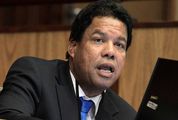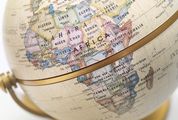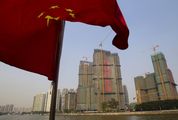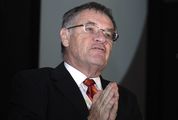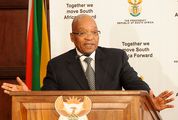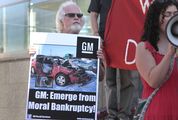THE death of former president Nelson Mandela is not likely to affect the way voters vote in next year’s elections, analysts say.
However, in the words of independent commentator Aubrey Matshiqi, this depends on the way in which political parties use his legacy for their political campaigns.
One view is that Mandela’s passing removed any reason the voters had for voting for his party, the African National Congress (ANC), suggesting that it was their loyalty to the icon that cemented their allegiance to the party.
Another view is that the death of Mandela could diminish the "liberation dividend" which has benefited the ANC since 1994.
But political analyst Steven Friedman rebuffed this hypothesis. "I can’t see how this would work," he said. "I don’t think Mandela is a factor in the way people vote.
"The reality for the vast majority of people is that there is not such a deep emotional affinity for Mandela that they will think that now that he is no longer here there is no longer a need to support the ANC."
He said Mandela had ceased to be a political actor in 1999 and that any emotion that South Africans felt now over his death would be irrelevant in a few months’ time when they cast their votes.
Prof Friedman believed Mandela’s death would demolish the myth that South Africa had not been engulfed in a racial war was because of the presence of this one man. "Believe it or not", this view was still prevalent among investors, he said.
What Mandela’s death would demonstrate was that South Africa was a more secure society than commonly thought. But this did not detract from the example that Mandela provided of reconciliation during the country’s transition.
"All societies are built on myths to a certain extent," said Mr Friedman, adding that this could be a good thing if it contributed to the building of an inclusive society.
Mr Matshiqi’s view was that Mandela’s death would not have an effect on voting behaviour on its own, but would depend on how parties used his legacy in their election campaigns. For those voters who had already decided how they would cast their vote, Mandela’s death would not matter either way.
"If there is an attempt to exploit his legacy for their advantage, it could work against the parties."
For example, such a ploy could backfire if used by the ANC, as voters could compare this legacy with the present state of the party and find it wanting. Others could associate Mandela’s memory with the ANC to the benefit of the party.
If the Democratic Alliance tried to claim Mandela as its own or to project itself as part of the liberation struggle, it could engender negative perceptions among voters "who think they have been caught in a lie". Mr Matshiqi believed the liberation dividend did matter and would play a role in voting, as South Africa would be celebrating 20 years of democracy.
This would work to the advantage of the ANC, which would invoke what has been achieved since 1994, but to its disadvantage in regard to the deficit in the pace, scope and quality of delivery.
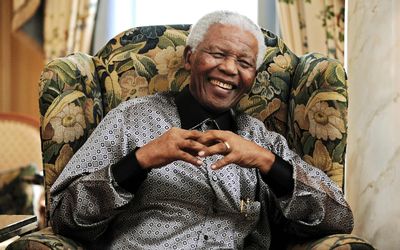
Former president Nelson Mandela chats with Britain's Prime Minister Gordon Brown (not pictured) during a meeting at his hotel in central London, in this June 24 2008 file photo. Picture: REUTERS
THE death of former president Nelson Mandela is not likely to affect the way voters vote in next year’s elections, analysts say.
However, in the words of independent commentator Aubrey Matshiqi, this depends on the way in which political parties use his legacy for their political campaigns.
One view is that Mandela’s passing removed any reason the voters had for voting for his party, the African National Congress (ANC), suggesting that it was their loyalty to the icon that cemented their allegiance to the party.
Another view is that the death of Mandela could diminish the "liberation dividend" which has benefited the ANC since 1994.
But political analyst Steven Friedman rebuffed this hypothesis. "I can’t see how this would work," he said. "I don’t think Mandela is a factor in the way people vote.
"The reality for the vast majority of people is that there is not such a deep emotional affinity for Mandela that they will think that now that he is no longer here there is no longer a need to support the ANC."
He said Mandela had ceased to be a political actor in 1999 and that any emotion that South Africans felt now over his death would be irrelevant in a few months’ time when they cast their votes.
Prof Friedman believed Mandela’s death would demolish the myth that South Africa had not been engulfed in a racial war was because of the presence of this one man. "Believe it or not", this view was still prevalent among investors, he said.
What Mandela’s death would demonstrate was that South Africa was a more secure society than commonly thought. But this did not detract from the example that Mandela provided of reconciliation during the country’s transition.
"All societies are built on myths to a certain extent," said Mr Friedman, adding that this could be a good thing if it contributed to the building of an inclusive society.
Mr Matshiqi’s view was that Mandela’s death would not have an effect on voting behaviour on its own, but would depend on how parties used his legacy in their election campaigns. For those voters who had already decided how they would cast their vote, Mandela’s death would not matter either way.
"If there is an attempt to exploit his legacy for their advantage, it could work against the parties."
For example, such a ploy could backfire if used by the ANC, as voters could compare this legacy with the present state of the party and find it wanting. Others could associate Mandela’s memory with the ANC to the benefit of the party.
If the Democratic Alliance tried to claim Mandela as its own or to project itself as part of the liberation struggle, it could engender negative perceptions among voters "who think they have been caught in a lie". Mr Matshiqi believed the liberation dividend did matter and would play a role in voting, as South Africa would be celebrating 20 years of democracy.
This would work to the advantage of the ANC, which would invoke what has been achieved since 1994, but to its disadvantage in regard to the deficit in the pace, scope and quality of delivery.


